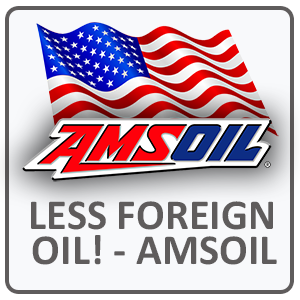Will Your RV Get You Over the Next Hill?
Will Your RV Get You Over the Next Hill?
by Steve on Thursday 13 May 2004
Those of us that have recreational vehicles buy them for comfort. Part of that comfort is knowing you will get to your destination and back. RVs are expensive and are often the next most expensive thing you buy after your home. Some of us who travel in our work use an RV as a necessity not a luxury. Whether you are getting away for the weekend or going for extended business reasons you can’t afford to break down on the road.
RVs have many systems that need maintenance from time to time. The amount of maintenance does not seem to be proportional to the amount of usage though. Most RVs set around for months on end then after a quick check of some of the systems we head out over the road. Preventative maintenance is probably the best time spent and that is especially true of motor homes.
The chassis many RVs use is often based on a beefed up pick-up or small transport truck. Load ratings start near the maximum for small transport trucks and range up to the maximum for over the road heavy haul trucks. The drive trains are designed to handle the weight and strain when maintained and loaded correctly. How many times have you checked the load ratings on your RV?
Some manufacturers use estimates to allow for camping gear, food and passengers. Estimates are guesses based on averages. How many average families do you know? Does your family qualify as average? As you can see, there many things that can vary between the time your RV was designed and the time you get to your destination.
Planning for your particular uses for your RV is important. If you tow a boat or vehicle it is important to consider the extra weight. If you are going for two weeks you probably will have more food and supplies on board. The more weight you have the more strain is put on all of your RVs components. If you keep your load in mind while driving you can reduce strain by slowing down on steep hills or rough spots.
You can reduce some of the strain and wear with proper use and preventative maintenance. Heat and friction are the main enemies of your RV drive train. When loading approaches the maximum for your RV a lot of heat is created particularly on hills. Because heat can reach the design limits of components they need to be in top condition. Hoses and belts are critical and should be replaced after about five years approximately or after 100,000 miles. All hoses, not just radiator hoses but heater, fuel, hydraulic, oil and transmission hoses should be inspected and changed as needed. If you use your vehicle on a regular basis sometimes you can get more life out of hoses and belts. Burst oil hoses spraying hot oil on hot engine parts have caused many vehicle fires.
Using products that reduce heat and wear are great for safety and longevity of your RV. AMSOIL is the industry leader in synthetic lubricants. AMSOIL has many products that are designed to provide protection top to bottom on you RV. AMSOIL products lubricate better, and significantly reduce heat and wear. AMSOIL has lubricants with extended drain intervals for each of your RV drive train components.
AMSOIL is a very reputable company that has provided top customer satisfaction for over 30 years. You can feel good about the AMSOIL products. It is exciting to share news about products that have superior performance and you can be proud to be doing something positive for our environment.
I am an independent AMSOIL dealer, I am T-1 certified and wish to help anyone who would like to use AMSOIL products or become dealers themselves. If you would like to become a preferred customer and buy AMSOIL products at a discount please click here for more information.
If you would like to buy at a discount and share this opportunity with others please click here for more information on becoming a dealer.
© www.lessforeignoil.com 2004
Steve Danielson
Independent AMSOIL dealer 1091803
Toll free 877-667-3841
Home office 360-666-2358
E-mail steverv@lessforeignoil.com





